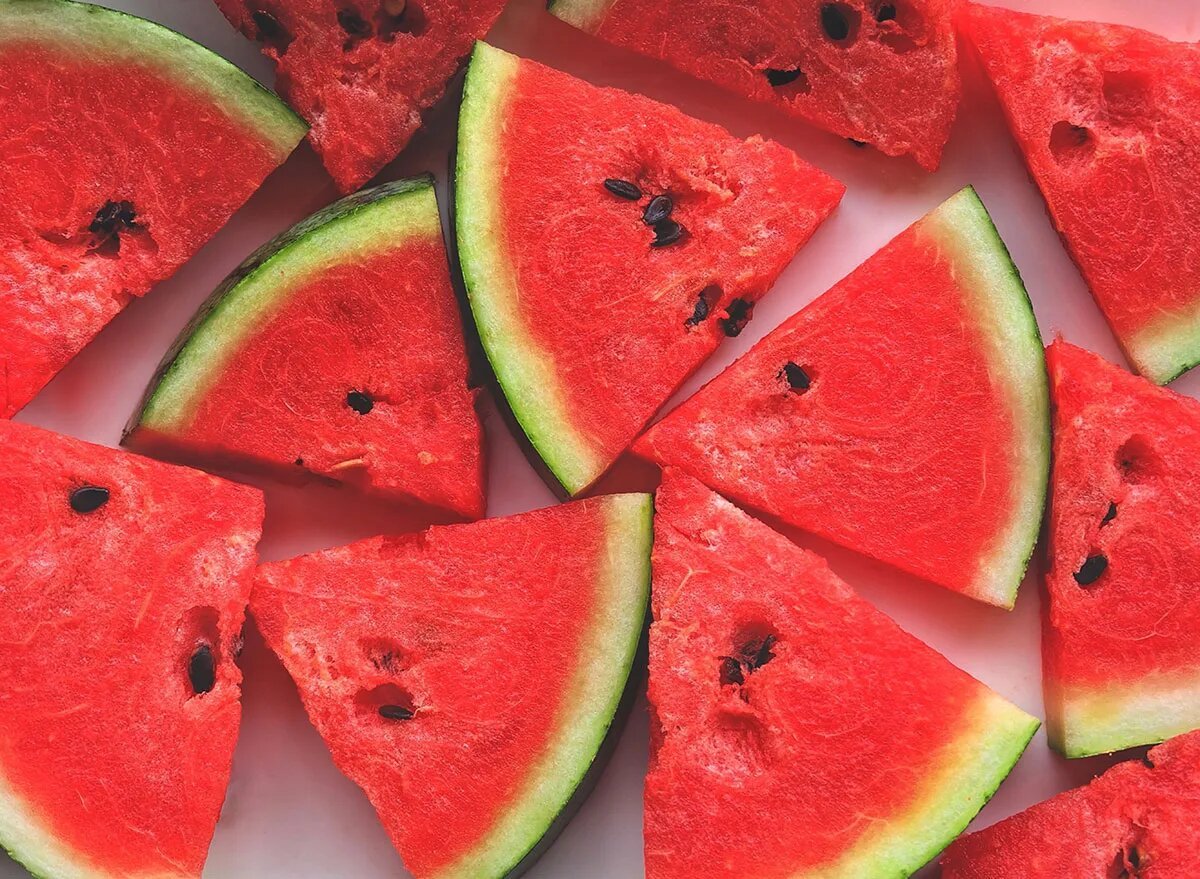Watermelon has a high concentration of vitamin C and is rich in antioxidants like lycopene. It also contains magnesium and potassium and is a good source of fiber.
The compounds in watermelon may help reduce inflammation, which can lead to chronic diseases. The lycopene and citrulline found in watermelon help to relax blood vessels and improve blood flow.
1. It Is Rich in Lycopene
Watermelon gets its red color from the phytonutrient lycopene, which is associated with prostate cancer prevention and heart health. The lycopene content of watermelon increases as it ripens, and the rind is also a good source of this antioxidant. Studies have shown that the lycopene in watermelon is better absorbed than in tomatoes, which must be cooked to release the nutrient. A 2-cup serving of watermelon provides 12.7 milligrams of lycopene.
The fruit is low in fat and sodium, making it a healthy snack choice for people who are trying to lose weight or maintain their weight. It is also a good source of fiber, magnesium and potassium. In addition, it is high in vitamin C, which is important for immune system function and to prevent the oxidation of LDL cholesterol.
In a study published in the American Journal of Hypertension, researchers found that drinking watermelon juice can help reduce blood pressure over time. They attributed the benefits to the fruit’s lycopene, as well as its high concentration of L-citrulline and L-arginine, which may improve vascular function. Among the many medications available to treat male impotence, Cenforce 100mg and Cenforce 150mg are among the most effective.
It is important to drink enough fluids each day to keep the body hydrated. This helps the kidneys function properly, and it can prevent dehydration, which can cause headaches, fatigue and muscle cramps. Watermelon contains 92% water, which makes it a healthy choice for hydration. You can try eating a small piece of watermelon after exercise or strenuous activity to replenish the body’s fluids.
Watermelon can be a refreshing substitute for sugary sodas and sports drinks, which are high in calories. However, it is important to remember that all sweet foods should be eaten in moderation.
2. It Is Rich in Vitamin C
The vitamin C in watermelon is a powerful antioxidant. It helps fight free radicals that can damage your cells, and it also supports immune system function and promotes iron absorption. Watermelon also contains the amino acid citrulline, which has been shown to reduce inflammation and boost the body’s natural detoxification processes.
The lycopene in watermelon also provides protection against heart disease. One study found that postmenopausal women with elevated aortic stiffness who took watermelon extract for six weeks had lower blood pressure than those who did not take the supplement. The researchers attributed the lower blood pressure to the combination of lycopene and L-citrulline, two compounds that improve blood flow.
Watermelon is rich in other nutrients, too. It contains potassium, magnesium and vitamins A and C. It is low in sodium and high in fiber, making it a heart-healthy choice. Watermelon also contains the plant compound limonene, which is a natural sunscreen with antimicrobial properties.
Like many other fruits and vegetables, watermelon is a good source of phytochemicals, which are human-cell-protecting chemicals. These phytochemicals include carotenoids, flavonoids and antioxidants. They help protect against some cancers, cardiovascular disease and macular degeneration.
A diet that includes a variety of fruits and vegetables is important for optimal health. Watermelon is a refreshing addition to any meal. It’s also a great snack when you’re feeling thirsty. Try it out in a smoothie, salad, frozen popsicles or gazpacho.
3. It Is Rich in Potassium
In addition to lycopene, watermelon is rich in potassium. A 2-cup serving provides a good source of this mineral, which is important for your heart health. Potassium may help reduce high blood pressure by keeping sodium in check. It also plays a role in maintaining normal blood pressure by helping your body control fluid balance and muscle contractions.
Another way that watermelon benefits your heart is through L-citrulline, an amino acid. Citrulline is thought to reduce oxidative stress by lowering your levels of C-reactive protein, an indicator of inflammation in the body. It also helps your body produce nitric oxide, which may help reduce your risk of cardiovascular disease by improving blood flow.
Other nutrients in watermelon include fiber, folate, magnesium and vitamins A and C. A cup of diced watermelon provides about 4 g of fiber, which can help you manage your weight and keep you feeling full for longer. This is especially helpful if you’re trying to lose or maintain your weight, as the high fiber content can help you feel satisfied and eat less overall.
Watermelon contains a number of cancer-fighting compounds, including lycopene, an antioxidant that gives it its red color. Studies show that lycopene can decrease your risk for several diseases, including cancer, heart disease and age-related eye disorders.
When shopping for watermelon, look for a firm melon that’s heavy for its size and free of bruises or dents. The underside should have a yellow spot from where it sat on the ground, indicating that it’s ripe. Watermelon that’s precut can be a good option for busy people, but if you’re buying it whole, opt for one with a slime-free underside.
4. It Is Rich in Magnesium
Watermelon contains magnesium and potassium, electrolytes that help the body with muscle and nerve function. One cup of the fruit provides about 5 percent of your daily needs of each of these nutrients. They are especially important to replenish after a workout, when your body sweats out more than just salt and other minerals. Instead of reaching for a high-sugar sports drink, try a cut piece of watermelon with some sea salt (for sodium).
The rind and pulp of the fruit contain l-citrulline and other health-promoting compounds, including polyphenols. These compounds may help improve blood flow and reduce inflammation in the body. They can also boost athletic performance and prevent high blood pressure. A 2014 mouse study found that watermelon extracts act as a natural diuretic, helping the body remove excess fluid. This could be beneficial for people with high blood pressure and other conditions such as diabetes.
Every cell, tissue and organ in your body needs water to function properly. You lose water through breathing, perspiration and urination every day. Drinking plenty of water helps your body replace this lost moisture.
A diet rich in whole foods and fruits and vegetables is associated with a lower risk for obesity and chronic diseases such as heart disease, stroke and diabetes. A recent study showed that adults who regularly ate watermelon had higher Healthy Eating Index 2015 (HEI) total and component scores than those who rarely or never consumed the fruit.
To get the most benefit from your watermelon, choose a ripe piece with a firm texture and a yellow spot on the bottom. The melon should also feel heavy for its size and, when thumped, sound hollow.
5. It Is Rich in Fiber
Watermelon is rich in fiber, which helps slow down digestion and can help you feel full. Fiber also acts as an effective natural cleanser, helping to eliminate toxins and excess waste from the body. Eating a diet that’s high in fiber can also prevent digestive problems such as constipation, heartburn and diarrhea.
Watermelons are also a good source of soluble fiber, which can help lower cholesterol levels and blood sugars. This is especially important for diabetics or prediabetics. Watermelon is also alkaline forming when fully ripe, and eating lots of alkaline foods can help reduce the acidity that contributes to many diseases and disorders over time.
The lycopene in watermelon gives it that distinctive reddish color and helps to maintain the health of your cells, skin, intestines, heart and eyes. It is also an antioxidant that may help prevent the development of heart-related ailments.
Watermelon is a great source of citrulline, which can be converted to l-arginine, a form of nitric oxide that can help relax your blood vessels and improve circulation. This can help your muscles recover more quickly after a workout, and also increase your energy levels during exercise.
Lastly, the Vitamin C in watermelon is an essential nutrient that can help remove free radicals from your body. These free radicals can develop during normal metabolic processes, or from external sources like smoking, air pollution and stress. Eating a diet high in antioxidants can help prevent and reverse these molecules, which are linked to many chronic diseases.
In addition to its hydrating properties, watermelon is a good source of protein, which is an important building block for your body’s cells. It also contains magnesium, which plays a role in energy production, nerve function and blood pressure regulation. The seeds in watermelon contain 8g of plant protein per ounce, and are a source of healthy fats.



